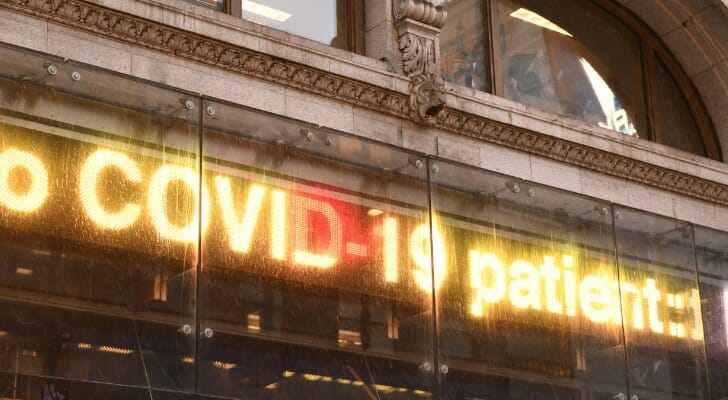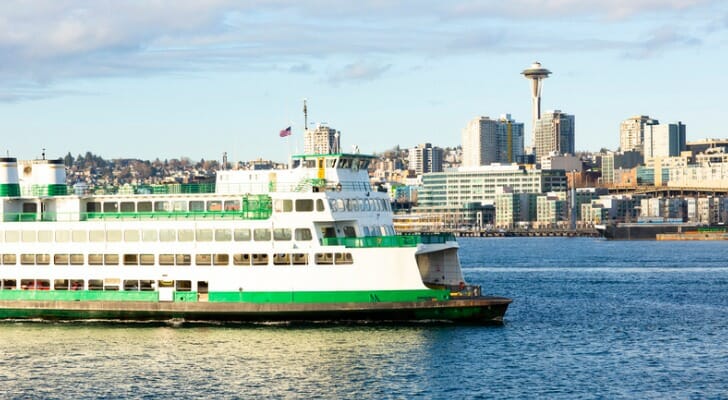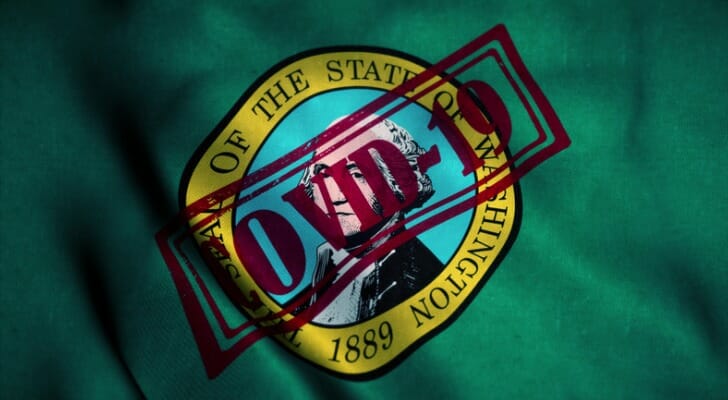The COVID-19 crisis has impacted daily life for nearly every American, and Washington State is one of the locations that has been dealing with the crisis the longest, as Seattle was one of the early hot spots for the epidemic in the U.S. The Washington State government has rolled out plans to help individuals and businesses impacted financially by the pandemic and the accompanying economic downturn, as have both the federal government and myriad local municipalities. If you want help managing your finances through the COVID-19 crisis and beyond, you might want to consider working with a financial advisor.
Washington Coronavirus Relief for Individuals
There are a number of statewide and local programs available to help individuals financially injured by the COVID-19 pandemic. Consult the list below and consider which may be beneficial and help you throughout the economic downturn.
Unemployment Assistance
If you lose your job because of the crisis, unemployment assistance is available. This is not a new program, but it has been streamlined as a result of the crisis. Information on how to apply is here.
Mortgage Assistance
Washington is providing help to homeowners who are struggling to pay their mortgage. There are no specific mortgage provisions for Washingtonians outside of those provided in the federal Coronavirus Aid, Relief and Economic Security (CARES) Act (namely that you may not be foreclosed on for the 60 days after March 18), but there is a state website for those who are looking for help dealing with their lender.
Eviction Moratorium
There is a 30 day eviction moratorium in Washington which began on March 18.
Food Fund
Many Washintonians are unable to feed themselves and their families during the pandemic, so the Washington Food Fund was founded by the state government to help alleviate the shortage. It will be helping support local food banks. If you are in Washington and need food, find your local food bank.
Community Funds
In Seattle, Washington’s largest city, there are a number of community funds residents can donate to that are helping different people and communities in the city. There are funds for families of Seattle Public School students, undocumented people and for LGBTQI+ and BIPOC people.
Washington Coronavirus Assistance for Small Businesses

Washington also has programs designed to help small businesses who are struggling as a result of the ongoing coronavirus crisis.
Washington Small Business Emergency Grant Program
Though now closed, this program provided grants of up to $10,000 to small businesses impacted by the outbreak. You can learn more here, but know that many counties closed their applications early on because of the overwhelming volume of interest. The program is available to businesses with up to 10 full-time employees.
Tax Relief
There is some tax relief available for businesses that don’t believe they’ll be able to pay their taxes on time. The due date for businesses that file quarterly has been changed to June 30, 2020, while the annual file date has changed to June 15, 2020. Even if a business can’t pay its taxes, the state still requests that it file a return. Those who think they need relief can call 360-705-6705.
Federal Programs for Individuals
The federal government has a bevy of programs available to help individuals who are struggling financially as a result of the COVID-19 pandemic and the economic downturn. The one that is likely to impact the most people is the personal stimulus check program. These checks are part of the CARES Act, passed and signed into law in March. This program is means tested, meaning that the amount of money you get from the government is determined by the income on your last tax return.
The most an individual can get as part of this program is $1,200, while married couples filing taxes jointly can get up to $2,400. This total is for individuals earning less than $75,000 and married couples earning less than $150,000. The amount you get goes down as your income goes up, with the program cutting off at $99,000 in income for individuals and $198,000 for married couples.
The Cares Act also offers enhanced unemployment benefits. For anyone who loses a job due to this crisis, 39 weeks of unemployment payments are guaranteed, 13 weeks more than is available in most states. There is also a $600 federal booster to unemployment checks through July 2020. Paid sick leave is also available for anyone who misses work because of the virus.
Federal Programs for Businesses
There are also federal government programs available to help businesses impacted by the pandemic and economic downturn. One is the Paycheck Protection Program, which lets businesses with less than 500 employees borrow up to 2.5 times their payroll (deducting excess salary over $100,000 for any employee earning more than that), with a $10 million maximum loan. PPP loans are guaranteed by the Small Business Administration at 100%. The equivalent of eight weeks of payroll, mortgage interest, rent and utilities are also forgivable, as long as the firm’s full-time headcount and payroll stay the same as they averaged between February 15, 2019 and June 30, 2019 (or January 1, 2020 and February 15, 2020 if the business was founded this year.) That total essentially becomes a grant if these provisions are met. Though the program’s first round of funding was exhausted, Congress recently approved an additional $310 billion in funding. You can apply for these loans through a local PPP lender.
Economic Injury Disaster Loans (EIDL), administered by the SBA, were available for up to $2 million in any area where an economic disaster had been declared. The interest rate was 2.75% for nonprofits and 3.75% for businesses. The loan term could be up to 30 years. Though the program ran out of its first round of funding, it reopended to certain agribusinesses. You can apply here.
Existing SBA loans are getting automatic debt relief. For six months, all payments including principal, interest and fees will be covered by the SBA. Check with your lender to make sure this applies to your loan.
If you have applied for an EIDL but need help making it until that money comes in, express bridge loans of up to $25,000 can do that. The money from the EIDL is then used to pay back the bridge loan. Apply for this with a local lender.
Existing programs for small businesses — including 7(a) loans, express loans, 504 loans, Community Advantage loans and microloans — are all still available.
The Bottom Line

Washington State has been hit hard by the COVID-19 pandemic, but plenty is being done to help. Make sure you check out both state and federal programs designed to help your small business or your family survive the economic downturn.
Tips for Managing Your Finances During the COVID-19 Crisis
- Getting a financial advisor is the best way to make sure your finances stay intact during this crisis. Finding the right financial advisor that fits your needs doesn’t have to be hard. SmartAsset’s free tool matches you with financial advisors in your area in five minutes. If you’re ready to be matched with local advisors who will help you achieve your financial goals, get started now.
- If you’re income has changed because of the pandemic, consider making a new budget to make sure all your needs are met.
Photo credits: ©iStock/Дмитрий Ларичев, ©iStock/400tmax, ©iStock/Shunyu Fan
